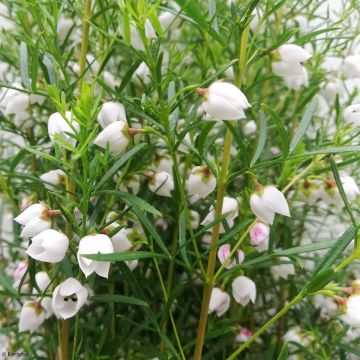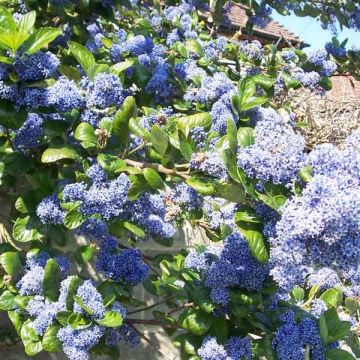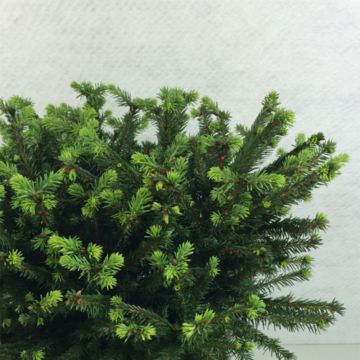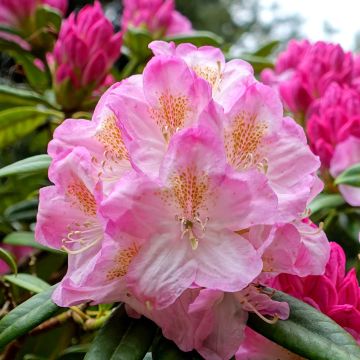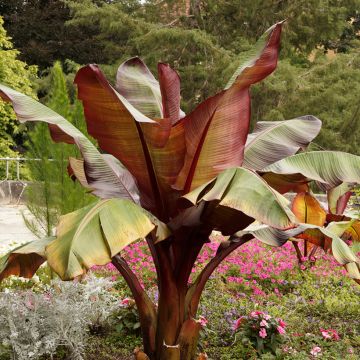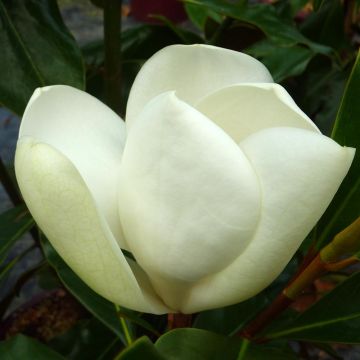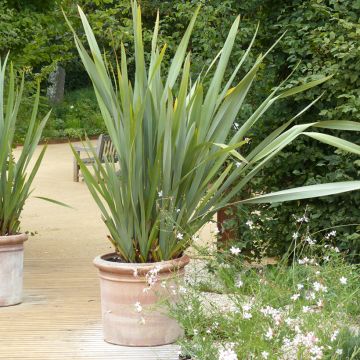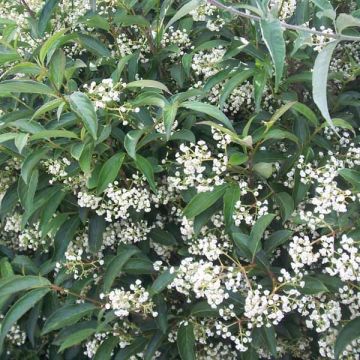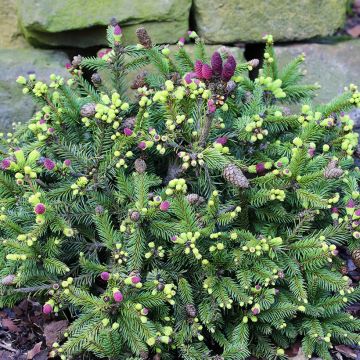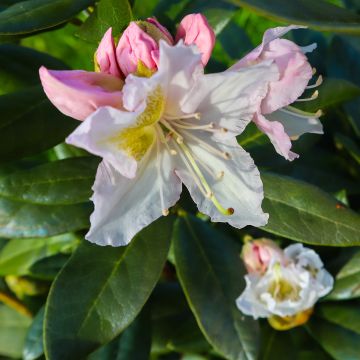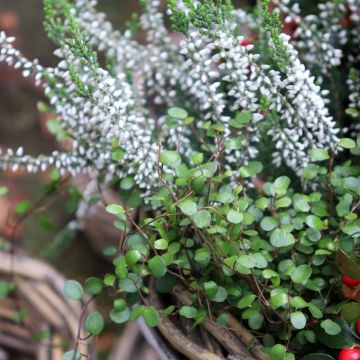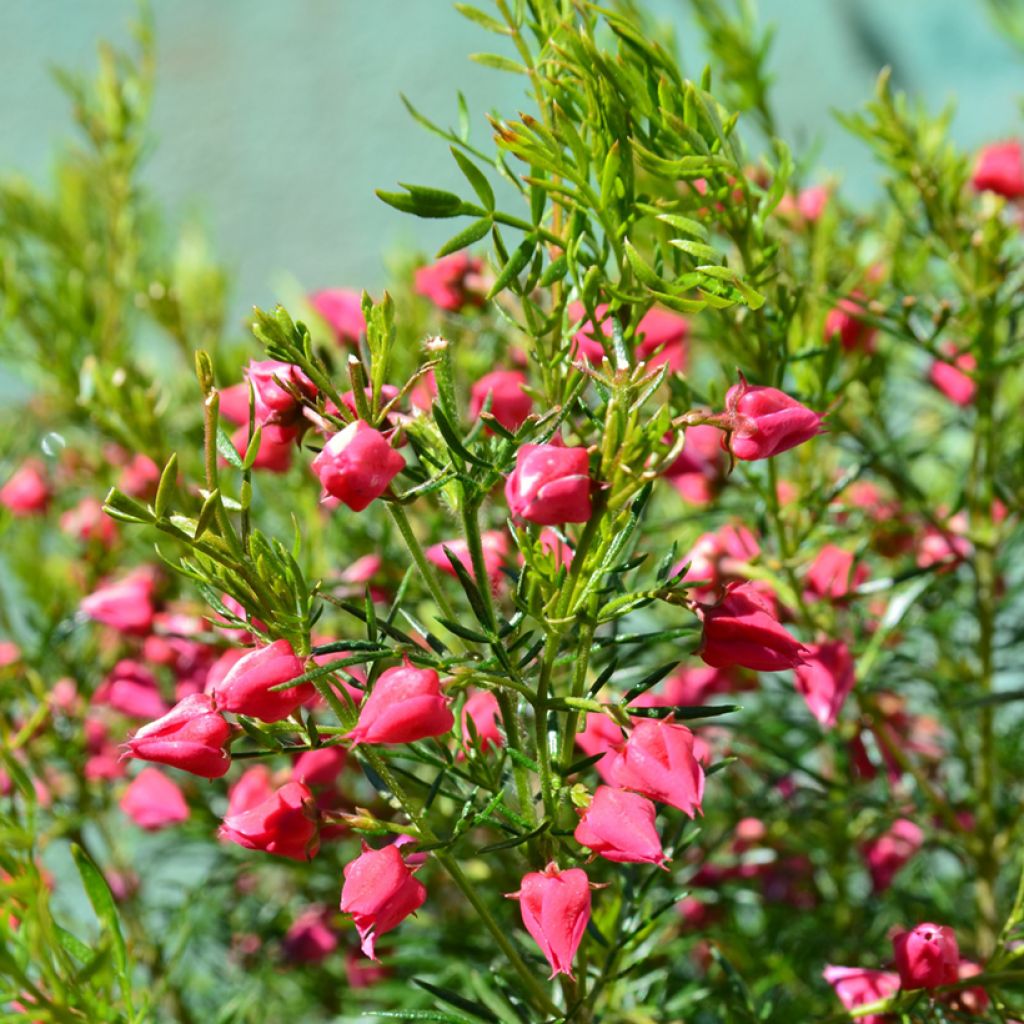

Boronia heterophylla
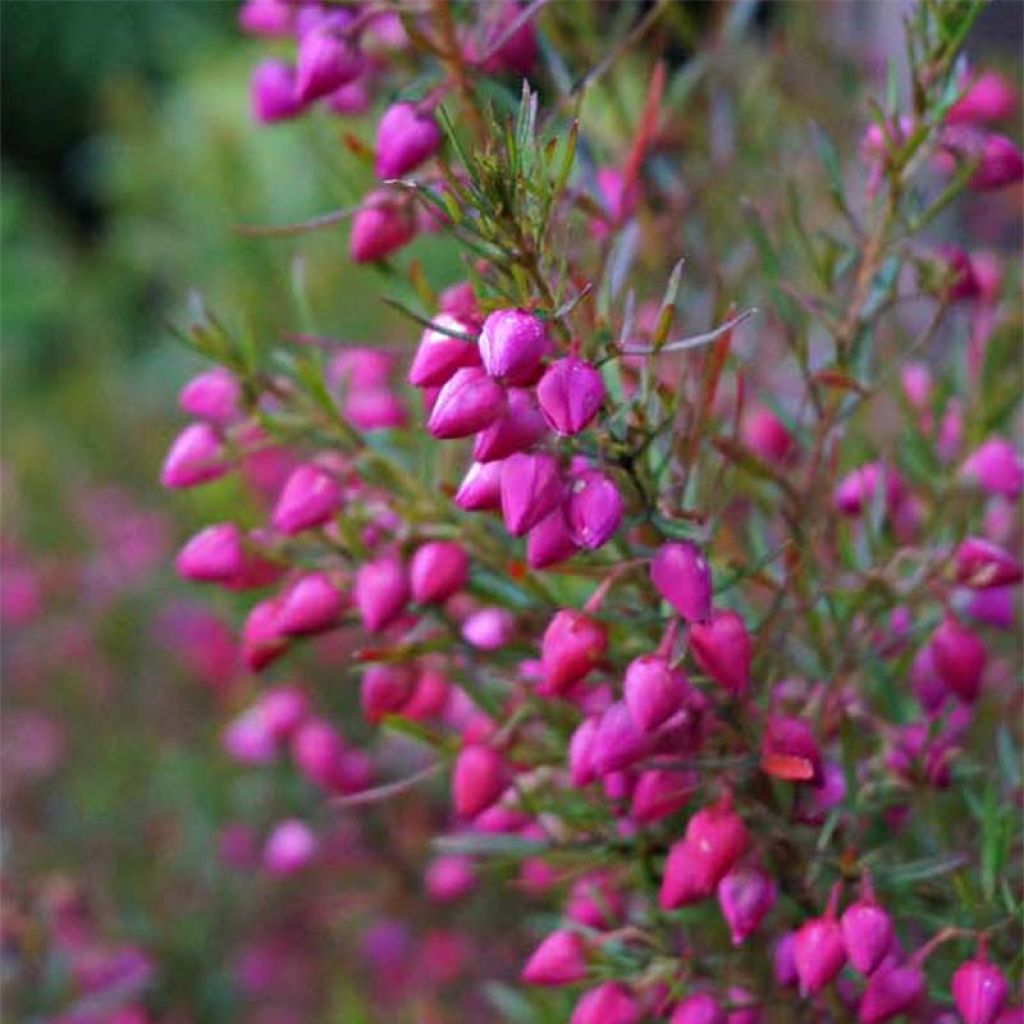

Boronia heterophylla
Boronia heterophylla
Boronia heterophylla
Red Boronia
Odd, I've already left a review that doesn't appear anywhere?? To say that out of the 3 young plants ordered and planted on the same day and under the same conditions, one is dying, the second is starting to show signs of weakness but the third is thriving and is very beautiful. I hope it will survive. I uploaded a photo but I can't see it anywhere?
Pierre, 19/03/2021
This item cannot be shipped to the selected country
Delivery charge from €5.90
More information
Schedule delivery date,
and select date in basket
This plant carries a 24 months recovery warranty
More information
We guarantee the quality of our plants for a full growing cycle, and will replace at our expense any plant that fails to recover under normal climatic and planting conditions.
From €5.90 for pickup delivery and €6.90 for home delivery
Express home delivery from €8.90.

Does this plant fit my garden?
Set up your Plantfit profile →
Description
Boronia heterophylla, the Red Boronia, is a highly floriferous and aromatic bush that will delight exotic plant enthusiasts. From a distance, in spring and summer, it somewhat resembles a heather shrub, with its upright, ramified habit, delicate foliage, and small pendulous bell-shaped flowers in a vibrant magenta pink. Like heather, it prefers slightly acidic soil, but the comparison stops there. It is a plant related to citrus trees, not very hardy, and thrives in soils that retain moisture in summer. If you have a garden located in a mild coastal region then this Boronia should thrive in your garden. As it performs very well in pots, gardeners in more colder climates can enjoy it on the terrace throughout the summer, pick its flowers to create delightful scented bouquets, and bring it indoors during winter in a lightly heated greenhouse or conservatory.
Boronia heterophylla is a bush from the Rutaceae family, native to the extreme south of Western Australia. Among the hundred species belonging to the genus Boronia, it is undoubtedly the one best adapted to cool climates. Its species name, heterophylla, refers to its small leaves with variable appearances, sometimes entire, sometimes finely dissected. It grows fairly quickly, reaching its adult size in 3 years, with an upright and generally oval habit, averaging 1.20m (3ft 11in) in height and 1m (3ft 4in) in width. It develops slender ascending branches, branching almost at every node along their entire length, almost parallel to each other. They bear narrow and pointed leaves of varying shapes, emitting a peppery scent when crushed. The particularly long flowering occurs in spring and summer. A multitude of flowers appears at the axils of the leaves, solitary or gathered in small groups. They are small pendulous bell-shaped flowers, 1cm (0.4in) in size, composed of 4 bright magenta pink petals with a waxy appearance. They are pleasantly fragrant. During fruit formation, the petals close and persist for a long time, enveloping the fruit until it ripens. This peculiarity gives the illusion of never-ending flowering.
Boronia heterophylla cannot withstand temperatures below -5/-6°C (23/21.2 °F), does not tolerate limestone or dry soils, and prefers full sun. Its requirements are clear and must be respected to succeed in its cultivation and enjoy its magnificent flowering. Outside of certain well-targeted areas of our Atlantic coast, it seems preferable to cultivate it in a pot, where the substrate and wintering conditions can be controlled. In the garden, it can be associated, for example, with Galvezia speciosa, Gomphostigma virgatum, broom shrubs, or white, pink, or red heather shrubs. On the terrace or balcony, it can be surrounded by Cape Leadwort, with its long blue flowering, Tibouchina, or Common Myrtle 'Flore Pleno'. Its spikes of small, intensely pink, fragrant flowers are a marvel in country-style bouquets!
Report an error about the product description
Boronia heterophylla in pictures
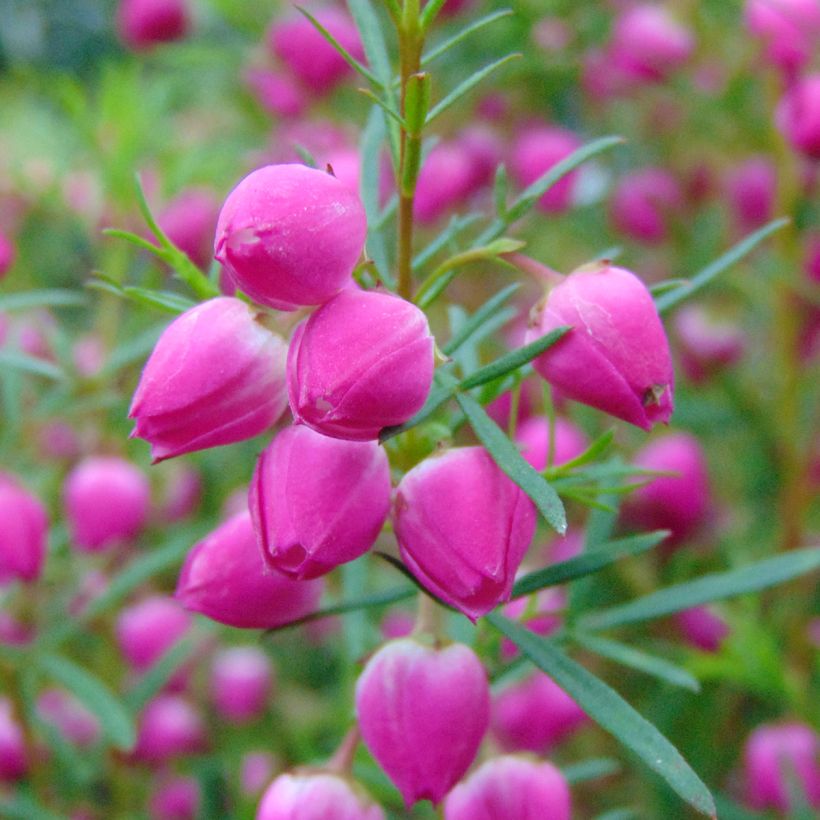

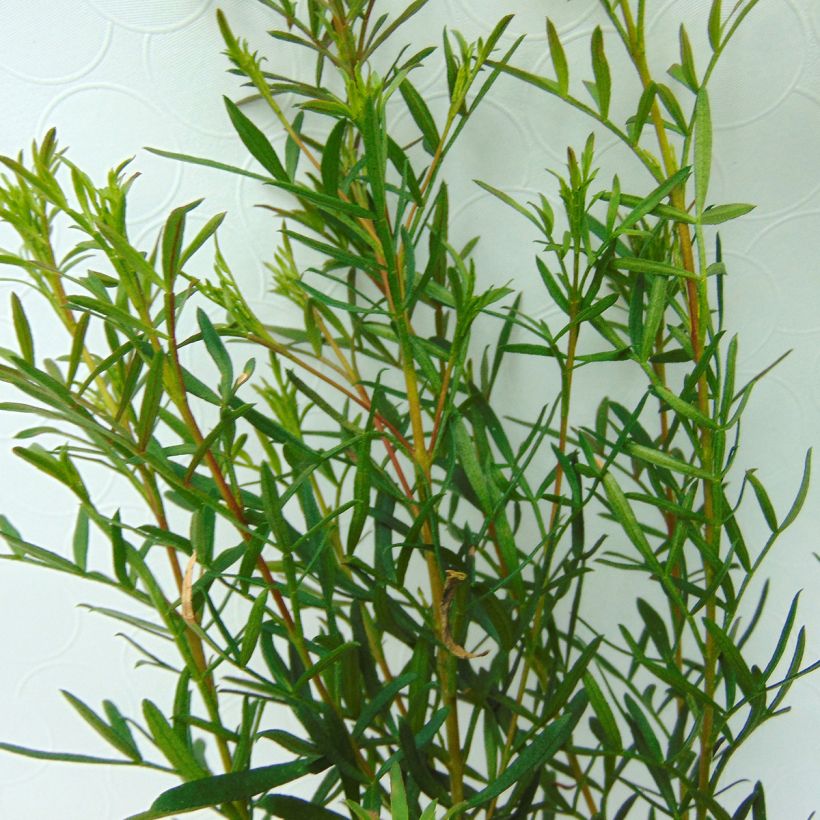

Plant habit
Flowering
Foliage
Botanical data
Boronia
heterophylla
Rutaceae
Red Boronia
Australia
Other Boronia
Planting and care
Cultivation:
Boronia heterophylla is hardy up to -5°C, but it loses its leaves as soon as the temperature drops below 0°C. Plant it in the ground or in pots preferably in spring. Choose a sunny or semi-shaded location. The soil should be light, relatively well-draining, and preferably neutral to acidic: a mix of peat, sand, and compost is ideal. Water the Boronia with non-limestone or low limestone (soft) water in summer, as this plant requires some freshness to flower and develop properly.
If grown in a pot, it should be taken outside as soon as there is no risk of frost. Choose a large container, as the planting substrate should always retain some moisture. Store your Boronia frost-free in autumn, in a cold greenhouse, in a lightly heated conservatory, or in a bright and cool room.
Pruning is not necessary, except to remove dead branches or rebalance the habit. But to make it denser, you can slightly shorten the tips of the branches just after flowering. Pruning later will compromise next year's flowering.
This bush does not have any specific diseases.
Propagation: by propagation by cuttings of semi-woody stems after flowering, placed in a special seed compost kept moist.
Planting period
Intended location
Care
-
, onOrder confirmed
Reply from on Promesse de fleurs
Evergreen shrubs
Haven't found what you were looking for?
Hardiness is the lowest winter temperature a plant can endure without suffering serious damage or even dying. However, hardiness is affected by location (a sheltered area, such as a patio), protection (winter cover) and soil type (hardiness is improved by well-drained soil).

Photo Sharing Terms & Conditions
In order to encourage gardeners to interact and share their experiences, Promesse de fleurs offers various media enabling content to be uploaded onto its Site - in particular via the ‘Photo sharing’ module.
The User agrees to refrain from:
- Posting any content that is illegal, prejudicial, insulting, racist, inciteful to hatred, revisionist, contrary to public decency, that infringes on privacy or on the privacy rights of third parties, in particular the publicity rights of persons and goods, intellectual property rights, or the right to privacy.
- Submitting content on behalf of a third party;
- Impersonate the identity of a third party and/or publish any personal information about a third party;
In general, the User undertakes to refrain from any unethical behaviour.
All Content (in particular text, comments, files, images, photos, videos, creative works, etc.), which may be subject to property or intellectual property rights, image or other private rights, shall remain the property of the User, subject to the limited rights granted by the terms of the licence granted by Promesse de fleurs as stated below. Users are at liberty to publish or not to publish such Content on the Site, notably via the ‘Photo Sharing’ facility, and accept that this Content shall be made public and freely accessible, notably on the Internet.
Users further acknowledge, undertake to have ,and guarantee that they hold all necessary rights and permissions to publish such material on the Site, in particular with regard to the legislation in force pertaining to any privacy, property, intellectual property, image, or contractual rights, or rights of any other nature. By publishing such Content on the Site, Users acknowledge accepting full liability as publishers of the Content within the meaning of the law, and grant Promesse de fleurs, free of charge, an inclusive, worldwide licence for the said Content for the entire duration of its publication, including all reproduction, representation, up/downloading, displaying, performing, transmission, and storage rights.
Users also grant permission for their name to be linked to the Content and accept that this link may not always be made available.
By engaging in posting material, Users consent to their Content becoming automatically accessible on the Internet, in particular on other sites and/or blogs and/or web pages of the Promesse de fleurs site, including in particular social pages and the Promesse de fleurs catalogue.
Users may secure the removal of entrusted content free of charge by issuing a simple request via our contact form.
The flowering period indicated on our website applies to countries and regions located in USDA zone 8 (France, the United Kingdom, Ireland, the Netherlands, etc.)
It will vary according to where you live:
- In zones 9 to 10 (Italy, Spain, Greece, etc.), flowering will occur about 2 to 4 weeks earlier.
- In zones 6 to 7 (Germany, Poland, Slovenia, and lower mountainous regions), flowering will be delayed by 2 to 3 weeks.
- In zone 5 (Central Europe, Scandinavia), blooming will be delayed by 3 to 5 weeks.
In temperate climates, pruning of spring-flowering shrubs (forsythia, spireas, etc.) should be done just after flowering.
Pruning of summer-flowering shrubs (Indian Lilac, Perovskia, etc.) can be done in winter or spring.
In cold regions as well as with frost-sensitive plants, avoid pruning too early when severe frosts may still occur.
The planting period indicated on our website applies to countries and regions located in USDA zone 8 (France, United Kingdom, Ireland, Netherlands).
It will vary according to where you live:
- In Mediterranean zones (Marseille, Madrid, Milan, etc.), autumn and winter are the best planting periods.
- In continental zones (Strasbourg, Munich, Vienna, etc.), delay planting by 2 to 3 weeks in spring and bring it forward by 2 to 4 weeks in autumn.
- In mountainous regions (the Alps, Pyrenees, Carpathians, etc.), it is best to plant in late spring (May-June) or late summer (August-September).
The harvesting period indicated on our website applies to countries and regions in USDA zone 8 (France, England, Ireland, the Netherlands).
In colder areas (Scandinavia, Poland, Austria...) fruit and vegetable harvests are likely to be delayed by 3-4 weeks.
In warmer areas (Italy, Spain, Greece, etc.), harvesting will probably take place earlier, depending on weather conditions.
The sowing periods indicated on our website apply to countries and regions within USDA Zone 8 (France, UK, Ireland, Netherlands).
In colder areas (Scandinavia, Poland, Austria...), delay any outdoor sowing by 3-4 weeks, or sow under glass.
In warmer climes (Italy, Spain, Greece, etc.), bring outdoor sowing forward by a few weeks.

































